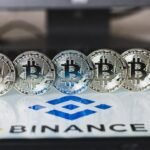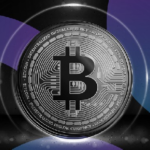There’s just one solution to actually characterize securities on-chain, and that’s by means of “native” tokenization, Carlos Domingo, CEO of BlackRock-backed digital asset securities agency Securitize, informed Decrypt on Thursday.
That distinction might change into extra essential, as corporations’ experimentation with security-based tokens doubtlessly leaves traders confused—a priority raised by the U.S. Securities and Trade Fee earlier this week.
A inventory that’s natively tokenized on Ethereum, for instance, would carry the identical set entitlements that traders obtain when buying inventory by means of conventional means, like voting or dividend rights, Domingo stated. Natively tokenized belongings additionally haven’t any counterparty threat, whereas avoiding any fragmentation points, he added.
BlackRock’s $2.8 billion USD Institutional Digital Liquidity Fund (BUIDL), which Securitize helped introduce final yr, is natively tokenized as a result of, because the asset supervisor’s switch agent, the agency manages and information the fund’s shares instantly on-chain, Domingo defined. Switch brokers often use proprietary databases as an alternative of a blockchain.
“The token represents 100% of the safety,” Domingo stated, pointing to crypto software program platform Exodus’ inventory as one other instance. “One token represents one share.”
Exodus shares started buying and selling as tokens on Securitize’s platform in 2022, however this yr, curiosity in tokenization has renewed, with Robinhood unveiling tokenized inventory buying and selling on Ethereum layer-2 scaling community Arbitrum final month, and Kraken pushing xStocks on Solana and different networks like BNB Chain.
In a assertion on Tuesday, SEC Commissioner and crypto job drive boss Hester Peirce beneficial that corporations structuring tokenized choices, given their obligation to stick to federal securities legal guidelines, ought to think about assembly with the regulator. Tokenization doesn’t present an exemption from current guidelines and rules, she underscored.
“As highly effective as blockchain know-how is, it doesn’t have magical talents to rework the character of the underlying asset,” she wrote. “Tokenized securities are nonetheless securities.”
Anthony Tu-Sekine, a associate at Seward and Kissel LLP who leads the agency’s blockchain and digital belongings follow, informed Decrypt that the dialog round tokenization pertains to crypto, however on the finish of the day, it’s about policing securities beneath current securities legal guidelines.
“Folks typically really feel that, due to the character of the blockchain, crypto must be much less regulated,” he stated. “That’s not what we’re speaking about right here.”
In some methods, Peirce’s assertion represented a warning to traders, not lengthy after ChatGPT maker OpenAI denounced Robinhood’s transfer to supply so-called inventory tokens in Europe which can be tied to fairness within the tech darling. In response, Robinhood stated its tokens give “oblique publicity to personal markets” as “tokenized contracts that comply with their worth.”
Certainly, Pierce stated in her current assertion {that a} tokenized safety, relying on the circumstances, might resemble “safety entitlements” or a “security-based swap,” versus fairness in any personal or public firm.
Robinhood’s inventory tokens possess some options that seem aimed toward making a managed surroundings for the product. U.S. clients are barred from shopping for inventory tokens, they will’t be despatched to different wallets or platforms, and customers should be KYC-verified through figuring out info.
Kraken doesn’t enable U.S. clients to buy xStocks both, however the tokens, that are issued by a agency known as Backed, are permissionless, that means that they are often freely traded on a decentralized alternate or independently adopted by any platform.
Because the SEC urges market members to think about federal securities, the regulator is making an attempt to stay to a collaborative strategy to crypto beneath U.S. President Donald Trump, as mirrored by a roundtable dialogue on tokenization hosted by the SEC in Might.
“In current historical past, we appear to have forgotten a really elementary idea: that traders and issuers have priceless observations and experiences,” SEC Commissioner Mark Uyeda stated.
Binance, the world’s largest crypto alternate, and now-defunct crypto alternate FTX as soon as dabbled in tokenized inventory buying and selling—however these merchandise had been in the end shelved.
Crypto lending platform Abra started providing contracts as tokens to clients in 2019 that allowed them to achieve publicity to cost moments of sure U.S.-listed shares and exchange-traded funds. The corporate “voluntarily ceased providing” the tokens after cooperating with an SEC investigation, in keeping with a CFTC submitting.
In 2020, the SEC and CFTC ordered Abra to pay every company a $150,000 penalty for allegedly providing unregistered securities and interesting in illegal off-exchange swaps buying and selling. Abra agreed, “with out admitting or denying the findings.”








